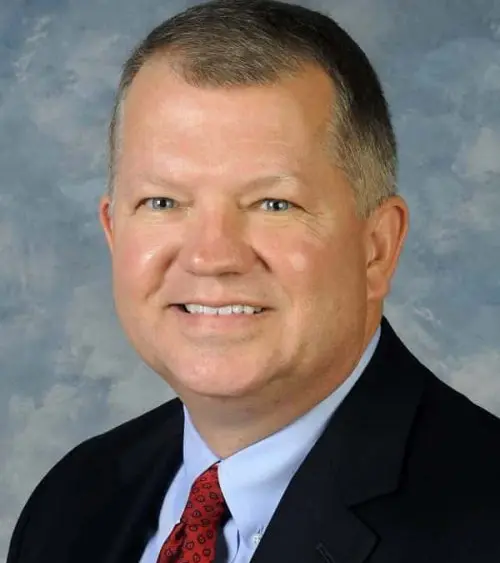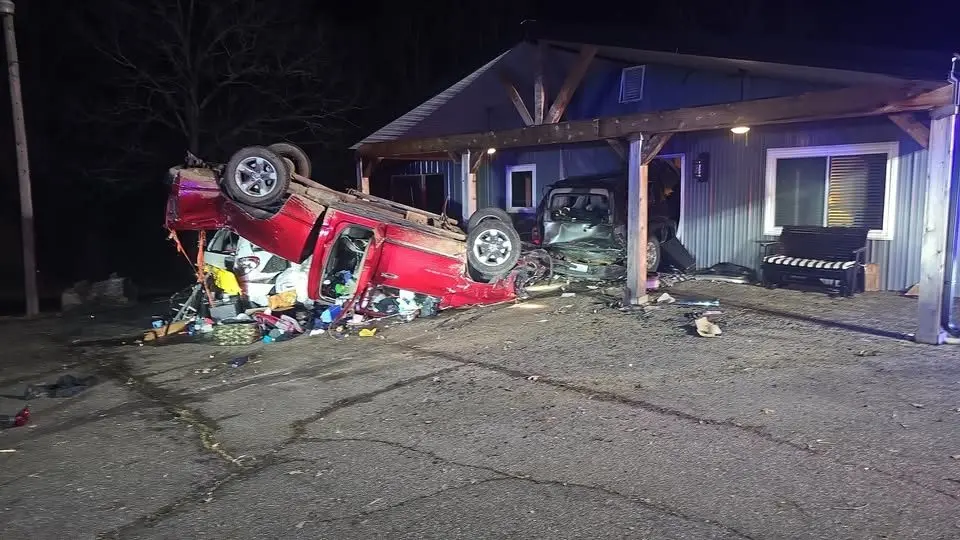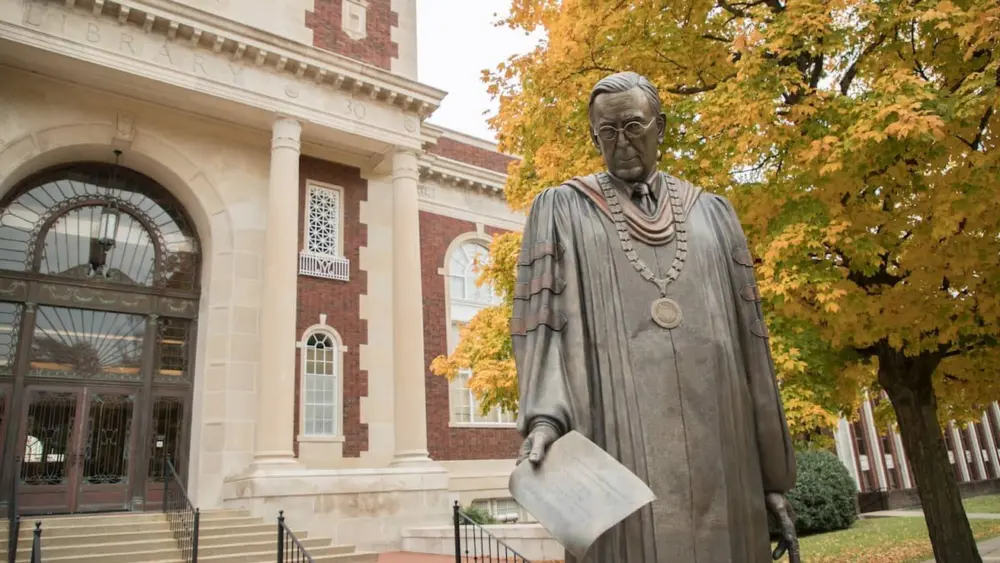 Weeks 10 & 11
Weeks 10 & 11
We are coming into the home stretch on the 2022 legislative session. The first and main priority of this session is to deliver a balanced budget and you should know we are working diligently on that now.
The state Senate officially placed its fingerprint onto the most significant budget related bill, the executive branch’s two year budget, which is House Bill 1. HB 1 alone allocates $26.3 billion of your taxpayer dollars and the Senate’s priorities reflected in the Senate Committee Substitute 1 (SCS 1) to HB 1.
The two chambers have entered into budget negotiations in a conference committee. Both chambers select members to negotiations on their differences so the final product can be agreed upon. SCS 1 to HB 1 reflects the Senate Majority’s keen understanding that each penny entrusted to Frankfort was from an investment of time and energy of every single Kentucky taxpayer.
High points of the Senate budget include:
· Pay increases for state employees
o A $4,500 raise in the budget’s first year for state employees, which is the equivalent of a 10 percent raise for employees in positions making $45,000. The state is finding many positions harder to fill and retain with no cost of living increases over the many years. The second year will also include a similar raise amount, but will be contingent on a Personnel Cabinet study that emphasizes employment environment, merit, locality and positional impacts.
o Those considerations will also be applied in raises for Kentucky State Police. Each trooper will receive a minimum $15,000 pay increase.
o Social workers will receive a $4,800 increase in the first year and then a 10 percent increase in the second year. These raises are on top of the 10 percent raise they received effective December 16, 2021 by the governor’s executive order. An important component of this Senate budget, and a reflection of the workload social workers carry, is to provide an alternate work program for those who have worked at least four years with the state. This will provide an alternate work opportunity that will help address employee burnout, heavy caseload and the emotional drain on the profession.
· Bolsters the state’s rainy day fund, also known as the Budget Reserve Trust Fund to $1.756 billion.
· Leaves a conservative $1.3 billion remaining after the biennium, providing the state fiscal flexibility
o The Senate budget accomplishes all this while including the chamber’s tax refund plan for working Kentuckians, $500 for single filers and $1,000 for households
· Education investments
o Increases per pupil funding to $4,100 in Year one (up from $4,000) and up to $4,200 in Year two and provides funding for school construction and maintenance. Previously allocated federal dollars became ineligible for school infrastructure funding following Biden administration policy change after Kentucky had already allocated those funds last year.
· Increases inmate per diem state reimbursement to county jails by $4, lowering the burden on local jails that are housing state inmates.
I will keep you updated as budget negotiations yield something more concrete. Please know Senate District remains my priority as we work to maximize the tax dollars you have entrusted to your Senators.
Aside from these significant budget efforts, election integrity was also a big part of week 10 legislative efforts.
Senate Bill 216 builds on election integrity efforts implemented in SB 4 of the 2020 legislative session and the bipartisan election reform SB 574 in 2021. SB 216 expands the Attorney General office’s independent inquiry of potential election irregularities to include no fewer than 12 random Kentucky counties. It implements measures to prevent voter fraud by removing credit or debit cards as a viable form of voter identification and prohibits a voting system from being connected to any network, including the internet, or with any external device. Additionally, it requires all voting machines to use paper ballots by January 1, 2024, and returns the Kentucky Secretary of State as chair of the State Board of Elections. After trust was breached, the previous Secretary of State was rightly removed as chair of the board.
Senate Bill 125 seeks to further improve Kentucky’s animal abuse rating, which has been poor for a number of years now but has been improved by measures to increase penalties against animal abuse.
Senate Bill 125 requires any law enforcement agency seizing a domestic animal whose owner violates animal cruelty law to notify the owner about the animal’s location within 24 hours and that they may be financially responsible for the animal’s care. If the owner does not contact the agency in 10 days, the animal may be deemed abandoned and moved to a safe place. The seizing agency may petition a court to require the owner to pay for all reasonable costs related to its seizure and care. The bill also prohibits the euthanization of a seized domestic animal, except for humane reasons, as determined by a veterinarian.
Senate Bill 205 is Kentucky’s response to major banks and investment firms that are denying lending to and investments in fossil fuel companies that promote “green” investments and political agendas. The coal industry has been a vital part of Kentucky’s economy for over 100 years and has provided affordable energy and good jobs for countless citizens of our Commonwealth. This concerted effort to financially starve out the fossil fuel industry is contributing significantly to high fuel and energy costs, resulting in extreme financial hardship on hard-working Kentuckians. SB 205 makes it clear that Kentucky stands with our fossil fuel companies and the Kentuckians who work every day to produce the resources that power our nation.
The bill requires the Kentucky State Treasurer to maintain a list of financial companies that are boycotting the fossil fuel industry and share that list with government agencies in Kentucky that make substantial financial investments, such as state pension funds. These governmental agencies are required to divest of investments in financial companies that refuse to stop boycotting. Kentucky will not invest state funds in financial companies that have declared war on our coal and fossil industry by adopting a political philosophy that will continue to increase fuel and energy costs and put our reliable power grid at risk.
Another unique event that took place is the General Assembly gaveled in for a historical day of session at the Old State Capitol. If you have never toured there, I highly recommend you go. The Old Kentucky State Capitol was the third statehouse, built in 1830 following devastating fires in the previous two. It was designed by native architect Gideon Shryock in the classical Greek Revival style, modeled after the Temple of Minerva and used until 1910 when the current Capitol was built. It is a beautiful building, steeped in history and rich with artifacts of days gone by.
Used during the Civil War, it was restored in the style of that era and replenished with historical relics of that time. Upon renovation in 1920, when the Kentucky Historical Society moved into the building, the Senate chamber was furnished with 1830s replica desks and chairs after discovering descriptions in the 1830 Senate Journal. Original to the building are the enormous iron 1840s era chandeliers and the hand-blown stained glass window panes. Walking in through the massive doors and into the marble rotunda is truly awe-inspiring; it’s astounding to believe that the commonwealth is home to such a beautiful structure.
The Old State Capitol was home to some of Kentucky’s richest political history, including prominent speeches by Henry Clay, Isaac Shelby and Thomas Metcalfe. It was also witness to the assassination of governor-elect William Goebel in 1899, which a plaque now marks.
The Senate experienced a bit of this history on Tuesday, when stories were told and history recounted through ruminations and floor speeches. Sen. Donald Douglas (R-Nicholasville) gave a moving speech about the symbolism of being an African American man elected to office and having the opportunity to stand and give a floor speech in a historic structure previously built by slaves. Senators Brandon Smith (R-London), Jimmy Higdon (R-Lebanon) and Phillip Wheeler (R-Pikeville) stood and spoke about historical figures either from their districts or families who had traveled to The Old Capitol for political business back in their day. It was a memorable day, not only fun but fascinating for those who love both state politics and history.
Three Senate bills landed on the Governor’s desk and were signed into law this week.
Senate Bill 64 was sponsored by Senate Majority Whip Mike Wilson and allows any public agency to establish a peer support counseling program for Kentucky’s public safety officers who have faced a traumatic, emotional or difficult incident while on duty.
Senate Bill 140, sponsored by Sen. Max Wise (R-Campbellsville) will make it possible for patients to take the specific medication their doctor prescribed instead of having to start with the generic medicine insurance companies prefer.
Senate Bill 265, sponsored by Sen. David Givens (R-Greenburg), replaces the board of trustees at the beleaguered Kentucky State University. This vital post-secondary institution is requesting $23 million to pay past due bills as a result of fiscal mismanagement. SB 265 is the first step to address KSU’s issues, as the legislature considers the changes and funding necessary to keep the historically black college solvent. Both chambers approved the bill and it has been delivered to the Governor for signature.
Senate Bill 315, sponsored by Sen. Robby Mills (R-Henderson), aims to tackle cleaning up Kentucky’s nearly 14,000 abandoned oil and gas wells. Under the federal government’s new infrastructure bill, Kentucky is eligible to apply for $105 million in federal grants to address this often forgotten issue.
This legislation will update the definition of an “orphan well” to include any oil or gas well which has been determined by the Energy and Environment Cabinet to be abandoned or improperly closed, and that all owners or operators with legal responsibility for the well are determined to be financially insolvent after the cabinet conducts a reasonable investigation. Doing so will ensure that Kentucky receives that maximum funding from these grants.
One of the main features of this bill will require that contracts awarded for the “orphan well” remediation be capped at 25 wells per contract. By doing so, this will allow for small contractors, vendors, and companies in the region to make competitive bids, creating much needed jobs and boosting the economy in the region.
The second tranche of funds totaling $75 million was released to Western Kentucky Relief Funds in SB 150. While Mills sponsored the bill, the positive effects will touch Districts 1, 2, 3, 4, 5, 9, 10 and 32 where the tornado tore through the commonwealth in December 2021.
SB 321 represents an incremental change in how and when an abortion can occur. Sponsored by Senator Wise from District 16, while it does not completely abolish abortions in Kentucky, it is one step closer to a day that thousands of Kentucky children will be saved from premature deaths.
Even as we celebrated Kentucky’s fascinating past, we looked into the future as the Senate passed legislation through SB 347 to do our part in the national roll-out of electric motor vehicle charging stations. With HB 392 we set up state regulation of so-called “solar farms” including where large solar electric generation fields could be located, and ways to assure the land under them is returned to good use when they are decommissioned after about 20 years of operation.
We also spent a lot of time promoting trade workers this week with HB 192, which helps folks employed in electrical installation and elevator repair, Heating and Air in HB 249, and certain hair blow-drying services through SB 113. Also affecting many Kentuckians was legislation relating to hunter education in SB 241.
On family related issues, we passed SB 95 to help women dealing with postpartum depression. We also increased penalties on those who commit crimes against children under 12 years of age, and required law enforcement to collect data relating to domestic violence so we can address that scourge in a more informed way with SB 271.







